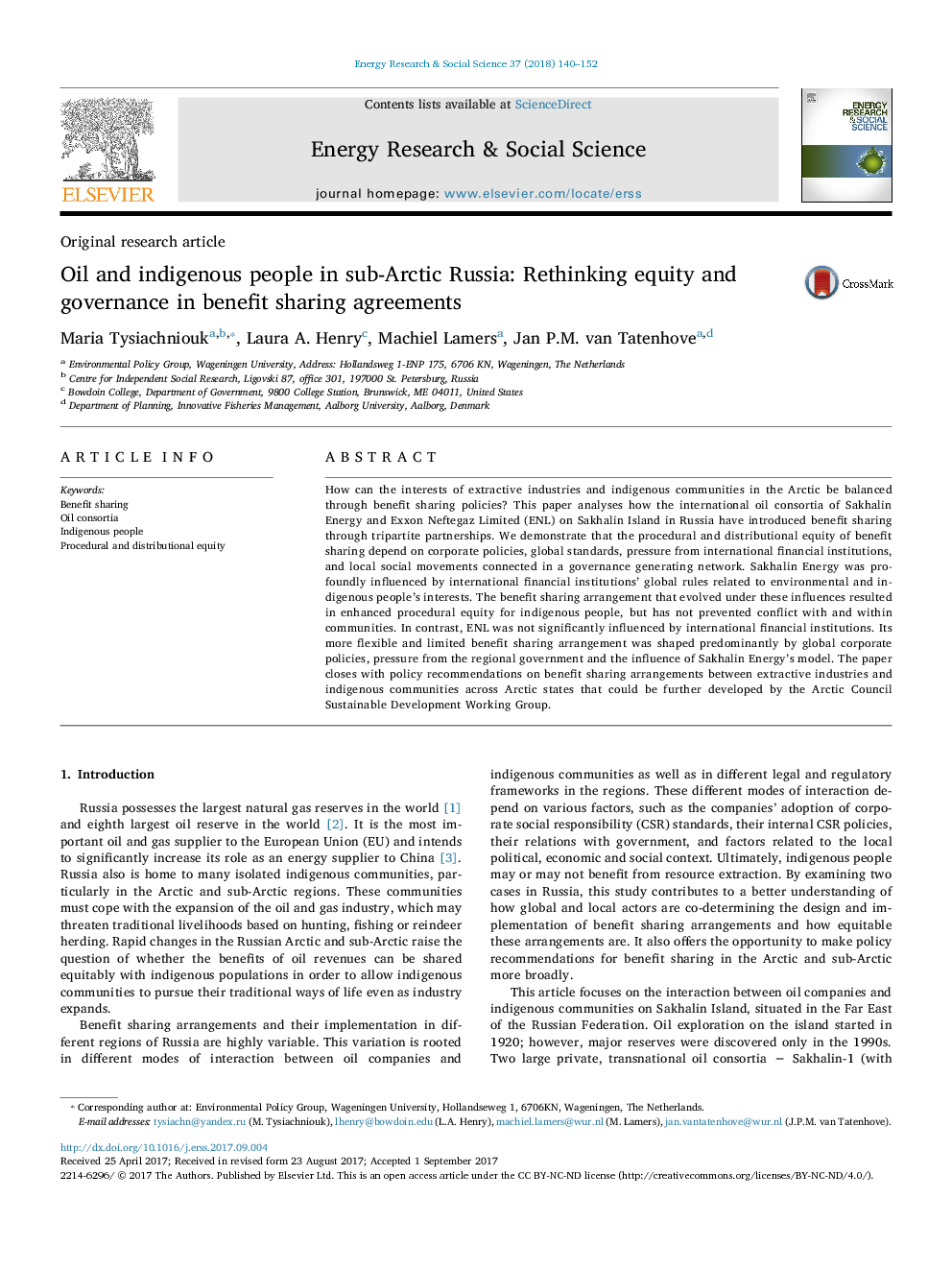ترجمه فارسی عنوان مقاله
مقاله پژوهشی اصلی اقیانوس ها و بومیان در زیر قطب شمال روسیه: بازاندیشی و انطباق در موافقت نامه های به اشتراک گذاری سود
عنوان انگلیسی
Original research articleOil and indigenous people in sub-Arctic Russia: Rethinking equity and governance in benefit sharing agreements
| کد مقاله | سال انتشار | تعداد صفحات مقاله انگلیسی |
|---|---|---|
| 145431 | 2018 | 13 صفحه PDF |
منبع

Publisher : Elsevier - Science Direct (الزویر - ساینس دایرکت)
Journal : Energy Research & Social Science, Volume 37, March 2018, Pages 140-152
ترجمه کلمات کلیدی
به اشتراک گذاری مزایای، کنسرسیوم نفت، مردم بومی، معادله رویه ای و توزیع،
کلمات کلیدی انگلیسی
Benefit sharing; Oil consortia; Indigenous people; Procedural and distributional equity;

